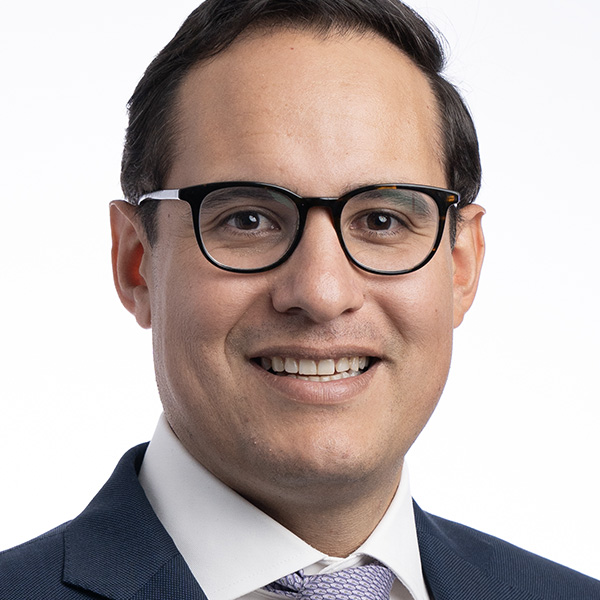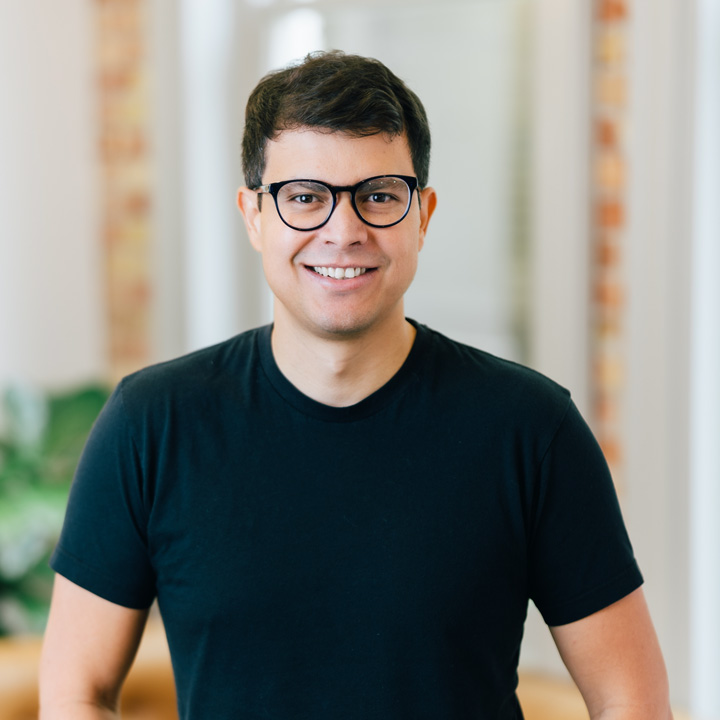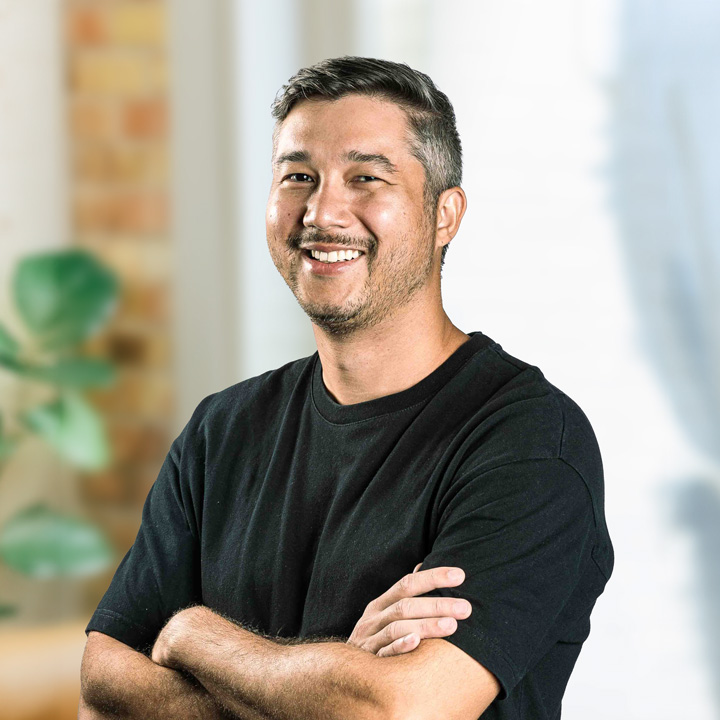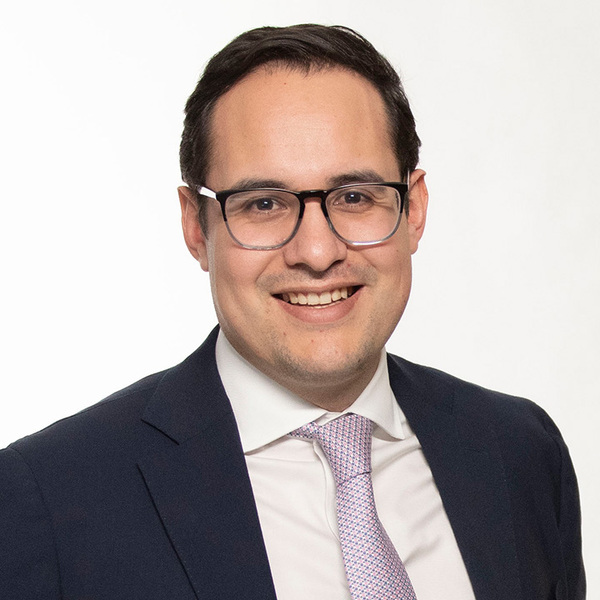Over the past year, the artificial intelligence (AI) space has experienced exponential growth. As the technology continues to develop rapidly, its potential applications do as well – from education, ecommerce, and biotech, to AI models for musicians. We sat down with Geraldo Ramos (CEO) and Eddie Hsu (COO), co-founders of Music.AI, to discuss the process behind launching and growing their company, how they stay unique in a competitive space, and what the future holds for AI and music.
Tell us about your journey to Music.AI. What inspired the idea for the company?
Geraldo Ramos: Eddie and I have been friends since kindergarten. After high school, we took different paths – he went to law school, and I went to work in computer science. However, we shared two common interests: music and technology. We are both musicians. I was involved with technology since I was young, and Eddie focused on intellectual property (IP) law for the Brazilian courts after law school.
Music.AI is the merging of these two major passions. It is so exciting and fulfilling when you can take parts of your life that were hobbies, like music, and make them your full-time job.
Eddie Hsu: In 2019, Geraldo came across an AI model created by researchers in France that allows you to take a song and separate the tracks – you can mute the drums, for example, if you want to play the drum part alongside the rest of the song.
That was the spark of Music.AI. We believed that AI and machine learning would affect the music industry, just like they had done with others. We started with that separation technology, eventually creating our own proprietary technology, and turned it into a product available to musicians.
We now have a team of more than 100 employees worldwide focused on creating our own AI models for music in different capacities. We have over 50 models, including those that do beat detection and lyric transcription.
GR: We started as a business-to-consumer (B2C) company serving musicians through our consumer app called Moises AI. We have evolved to serve more of the business-to-business (B2B) space as a musical tech provider. All the technologies we have developed to serve our app are now offered to clients, such as music labels and instrument manufacturers, via an application programming interface (API). This all lives under Music.AI.
Music.AI is not the first company you’ve started. Tell us more about your entrepreneurial journey and what brought you to this point.
GR: I’ve been an entrepreneur my entire life. It started early thanks to my mom. She was a developer, and we had a computer in our home in the early 1990s. That kickstarted my passion for technology and computers.
After high school, I started my first company, Gigahost, with a friend. It was a web hosting provider before the cloud really existed. Eddie eventually worked for us there. That was my first experience as an entrepreneur – I was 16 years old, and of course, I didn’t know anything! After about seven years of growing that company, we sold it to a bigger Brazilian internet provider.
After that, in 2010, I started a web and mobile development consulting firm. I eventually moved to New York City and started to meet some big customers. Business really picked up, but I missed having a tech business.
As a side project, I started my third business, HackHands, which was a marketplace for developers to get real-time help. Eventually, I spun this off into its own business, moving from a consulting company to an actual technology startup. We raised some capital from California-based investors, who convinced us to move to Silicon Valley. Eddie joined us helping with customer success and support.
After a few years, we got an offer to join a Utah-based company. We accepted, and eventually were acquired. The period after that was my one experience working as a non-entrepreneur. It was helpful because I learned a lot about scaling a business from series B funding to an initial public offering (IPO).
After that, I was ready for my next challenge, and that’s when Music.AI came about.
Our goal is to provide tools that empower the creativity of humans, as opposed to replace them.
Talk us through the process of launching and growing Music.AI.
GR: The beginning was explosive. My wife was traveling, so I had the entire weekend ahead of me to do something fun – why not start a business? It was like a weekend hackathon. On Monday, I shared everything with Eddie, since he knows music so well, and we kept working on it.
We launched through Product Hunt, which is a website that posts product launches of the day. It’s a way to kickstart awareness. It was one of the top products of the day, and then we started to get a lot of attention quickly. Within the first week or two, we already had 50,000 users. We realized it had potential and that we could turn it into an actual business, so we started to look at the opportunities in AI and music and charted a path from there.
The product was free at the beginning. Once we passed 100,000 users, we decided to offer a freemium option and then a paid model with all of the features, so that we could make it sustainable.
The business was completely bootstrapped that first year, and we were profitable, which is uncommon for a startup. It was the early COVID-19 days, so everything was remote, meaning no overhead costs. This helped us be effective since day one. When the time came to raise capital, we had already proven that we could be successful and that the business was scalable.
Talk about the process of raising capital once you made that decision.
GR: We raised the first round of $1.6 million in 2021 from a company focused on early-stage technology companies. That allowed us to move to the second phase of business – scaling to different product levels and expanding our mobile app presence. We had been using open-source, publicly available API models, and this was when we started developing our own AI models with the help of a senior data scientist.
We then raised another round of $8.6 million, which was co-funded by investors in Brazil and the U.S. We always say that the company is a dual citizen – we have offices in Sao Paulo, Brazil, and Salt Lake City, Utah, and investors in both countries, which was important to us.
AI is a rapidly developing and competitive space. What makes Music.AI unique among the noise?
GR: A lot of the noise is caused by companies that claim to be an AI company, but they didn’t actually develop the expertise there. They’re just using open-source models as opposed to their own solutions. That is the biggest barrier to entry when it comes to becoming an AI company. We are developing our own products with our own research team, and this is a huge differentiator.
EH: Geraldo and I are both musicians, as are nearly all of our developers. This means we use our own app. We’re not trying to create a product for somebody else – we are personally involved in its development. We are all passionate about our mission: Empowering creative potential.
We have been able to attract very talented individuals, and everyone on our team is committed to bringing together music and tech. We’re not trying to force our way to be a cool music AI company. It’s more organic and natural, and there is a lot of individual and personal interest in what we’re doing.
What does the future hold for AI in the music industry?
GR: That is difficult to predict. AI is already changing the music industry. It is part of the workflow for many musicians and producers, who may use it to restore an old album, for example.
The area of focus right now is generative AI, which is the ability to create music with other artists’ voices. A lot of artists are not happy with this. Some of these models have been trained with their content without their consent, and it is creating friction.
Our company focuses on a different area. Our goal is to provide tools that empower the creativity of humans, as opposed to replace them. Humans operate our products and have a creative influence on what’s being generated by the model. It’s not just an easy way for people to create songs for themselves. It requires creativity and passion.
EH: On one hand, AI has allowed us to restore old music and put it out there with a high quality. It helps an artist’s legacy live on.
On the other hand, it has introduced this democratization of people being able to create music. The barriers to creating music used to be that you needed an instrument and some basic musical knowledge. Now, with a prompt, people can create something. We don’t want these ready-made songs. Instead, we are focused on having humans steer the AI – it is a collaboration, not a substitution for human artistry.
You need to trust the process of iteration – get user feedback, and connect with the people who are using the product.
You signed a partnership with Berklee College of Music. Tell us about that partnership.
EH: This is a good example of how humans can leverage music AI when learning and developing their own music. Berklee is one of the top U.S. colleges for people interested in music. A professor there used the separation technology in our app to teach his students about different notes and techniques.
The tool became essential to his classes, and it led to a formal partnership with the college. Our app is now embedded in Berklee’s learning management system, so students have access to it, and it is also used within the curriculum.
What are some other interesting partnerships or projects Music.AI is working on?
GR: One fun one was a commercial we did with Papa Johns Pizza featuring Shaquille O’Neal. We have a model that can replicate someone’s voice for singing or speech purposes. Papa Johns reached out to us for help translating a commercial with Shaq from English to Spanish. We used our model to take the original commercial and convert Shaq’s voice to Spanish – it sounded like him and had the same vibe as the original ad.
Last question: What is your advice for next generation entrepreneurs who are just starting out launching their first business?
GR: It’s hard to boil it down to one piece of advice. I would say don’t be afraid to put ideas out there first – it doesn’t need to be perfect at the start. Timing is important – don’t wait, or you will end up behind the trend.
EH: The first version of our app did not look good at all, but we had a vision. We knew where we wanted to go. You need to trust the process of iteration – get user feedback, and connect with the people who are using the product. It goes beyond just putting the customer first. You need to truly engage and empathize with them.
Our engineers also respect senior management a lot, and I think it’s because we are on the journey with the rest of the company. We all create value together and collaborate as a team. There is no hierarchical barrier. Being open and welcoming to people is something that employees appreciate and will help your business thrive.
Geraldo and Eddie, thank you so much for your time and insights.
Interview conducted by Fernando Soto, and article written by Kaitlin Barbour.
Contact Us
Brown Brothers Harriman & Co. (“BBH”) may be used to reference the company as a whole and/or its various subsidiaries generally. This material and any products or services may be issued or provided in multiple jurisdictions by duly authorized and regulated subsidiaries. This material is for general information and reference purposes only and does not constitute legal, tax or investment advice and is not intended as an offer to sell, or a solicitation to buy securities, services or investment products. Any reference to tax matters is not intended to be used, and may not be used, for purposes of avoiding penalties under the U.S. Internal Revenue Code, or other applicable tax regimes, or for promotion, marketing or recommendation to third parties. All information has been obtained from sources believed to be reliable, but accuracy is not guaranteed, and reliance should not be placed on the information presented. This material may not be reproduced, copied or transmitted, or any of the content disclosed to third parties, without the permission of BBH. All trademarks and service marks included are the property of BBH or their respective owners. © Brown Brothers Harriman & Co. 2024. All rights reserved. PB-07482-2024-06-10




